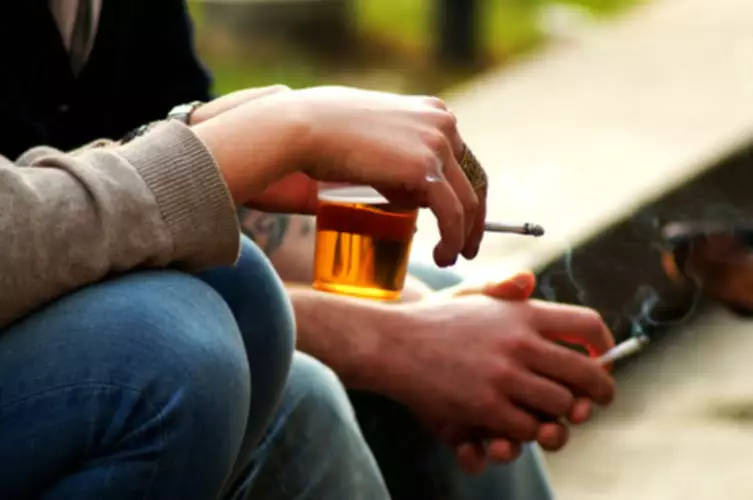.jpg)
These foods can help your body break down the histamines more effectively, reducing the potential for an allergic reaction. The build-up of histamines can then trigger the allergy-like symptoms when certain foods or drinks, such as alcohol, are consumed. It is important to talk to a doctor to get the proper diagnosis and treatment plan for histamine intolerance. The symptoms of alcohol intolerance usually occur immediately after drinking alcohol and can be intense.
- Alcohol allergy symptoms can range from mild, such as an itchy mouth or eyes, to severe, including vomiting or anaphylaxis.
- Additionally, the preservatives used in alcohol too can be harsh on your stomach, increasing the chances of allergic reactions causing stuffy nose or sinus congestion.
- Sulphites are often added to wine as preservatives to keep them fresh and prevent oxidation, but they can also be created naturally during the process of winemaking.
- People may also have an allergic reaction to specific ingredients in alcoholic drinks rather than the alcohol itself.
- However, to eliminate them completely, it is necessary to avoid consuming red wine altogether.
- However, if you consistently experience severe sneezing or other concerning symptoms, it is recommended to consult a healthcare professional.
- In addition to filtration, the use of fresh fruits and vegetables in cocktails can pose a risk for those with oral allergy syndrome (OAS).
Why Do I Sneeze While Drinking Wine?
Spirits such as vodka and gin can also cause sneezing due to the presence of histamines. In addition, some people find that the alcohol in these drinks irritates their nose, leading to sneezing. This dilation occurs first in the brain, so you may feel flushed or warm after only a few sips of alcohol.
Why do i sneeze after drinking alcohol?
If you have any of the above-mentioned symptoms after consuming alcohol, it is best to stop drinking and seek medical help if necessary. Not only can alcohol cause physical health issues such as dehydration and swelling, but it can also lead to mental health problems such as depression, anxiety, and increased risk for suicide. In addition to filtration, the use of fresh fruits and vegetables in cocktails can pose a risk for those with oral allergy syndrome (OAS). OAS is an allergic reaction to certain proteins found in raw fruits and vegetables, which are also present in many alcoholic drinks. As such, it is important for those who suffer from this condition to be aware of the potential risk that drinking certain cocktails may pose. Some people may be sensitive to other compounds in the beverage and will need allergy testing to determine what they are allergic to.
Can You Be Allergic To Just Red Wine?
People can also have an oral allergy syndrome — a reaction to fresh fruit and vegetables that may be used as a garnish or a mixer in a cocktail, according to Bassett. Hazelnut or almond in liquor can also be a problem for those with an allergy to nuts. Dec. 24, 2012— — Kristin Brown loved to drink – perhaps partied a little too much when she was in her 20s, but when she hit her 30s, alcohol suddenly hit her the wrong way. Younger wines like crisp whites and rosés, and anything with a screw top is far less likely to have mould. If you see mould around the cork of an older bottle, make sure that you clean it off very thoroughly before opening, and take care there is minimal contamination from the cork.
Health Conditions
Stuffy nose problem is also termed as sinus congestion which often occurs due to presence of preservatives like sulfur dioxide. To understand what causes stuffy nose on drinking alcohol, it is necessary to understand certain facts. You may get stuffy nose owing to the presence of some preservatives in alcohol. Many times, some allergic reactions can make you more sensitive towards alcohol intake. Histamine intolerance can be managed by taking antihistamines, which help the body process the excess histamine.
Beer, brown liquor, and cider contain the highest levels of sulfites among alcoholic beverages. Sulfites are also found in wine, where they occur naturally as a result of the fermentation process. Allergic reactions to beer can manifest as abdominal pain and bloating, chest tightness, hives, wheezing, and chest pain. These symptoms can occur almost immediately after ingesting beer and should be treated as severe and potentially life-threatening. Histamines are chemicals produced by the human immune system and are found in nearly all tissues of the body.
.jpg)
In particular, if you have developed an intolerance or allergy to wine, then this could lead to more severe reactions such as anaphylaxis. Symptoms of a wine allergy include rashes, nasal congestion, wheezing or a tingling sensation around the mouth and throat. Other molds, yeasts, proteins, and ingredients used for wine fining can also be allergens. It is important to be aware of these allergens as they may cause reactions in those who are sensitive. For those with why do i sneeze when i drink alcohol Red Wine Allergies, the symptoms can be quite unpleasant and may last for several hours.
.jpg)
As such, The TTTB has proposed a change to the labeling requirements which will require winemakers to list any ingredients that may contain histamines on the label. People who drink daily or almost every day should not be left alone for the first few days after stopping alcohol. Withdrawal symptoms can quickly go from a bad hangover to a serious medical… The most common of these compounds are sulfites, which are typically highest in beer, brown liquor, and cider. There is no conclusive evidence to suggest that alcohol-induced sneezing is inherited.
Taking smaller sips can help reduce the amount of carbonation your nose is exposed to. While it may be more common than you think, it can be a sign of a mild allergic Alcoholics Anonymous reaction to alcohol. In rare cases, sneezing triggered by alcohol could be a symptom of an underlying medical condition, such as gustatory rhinitis or trigeminal nerve dysfunction. If sneezing persists or is accompanied by other concerning symptoms, consult a healthcare provider. Individuals may find that certain types of alcohol, such as wine or beer, trigger sneezing more frequently than others. Finally, the taste of red wine itself can also cause sneezing in some people.
The key to managing histamine intolerance is to recognize which foods and drinks are high in histamine levels and avoid them. Incomplete absorption of alcohol by the body could be one reason why you get stuffy nose on drinking alcohol. Additionally, people with alcohol intolerance, a genetic condition affecting the body’s ability to break down alcohol, may experience sneezing and why do i sneeze when i drink alcohol nasal congestion after drinking beer.
- Incomplete absorption of alcohol by the body could be one reason why you get stuffy nose on drinking alcohol.
- Taking smaller sips can help reduce the amount of carbonation your nose is exposed to.
- It is important to note that not all allergic reactions to red wine are caused by histamine.
- The sulfur compounds in red wine can irritate your nasal passages, resulting in inflammation and swelling that can lead to sinus issues.
- Are you wondering whether your drinking is on the high side of normal or if it’s crossed the line into a problem?
- There is no conclusive evidence to suggest that alcohol-induced sneezing is inherited.
Red wines, for example, tend to have higher levels of histamines than white wine or beer. If you find that drinking these beverages triggers an allergic reaction, then it’s important to limit your intake and switch to lower-histamine alternatives. Another helpful tip is to opt for histamine-low foods, such as fresh fruits and vegetables, or fermented products like yogurt or kefir.
PLUS, the latest news on medical advances and breakthroughs from Harvard Medical School experts. But because these medications and laser treatments are considered cosmetic, they aren’t typically covered by insurance. The good news is, simple wine sneezes are nothing to be concerned about if the symptoms are mild.




